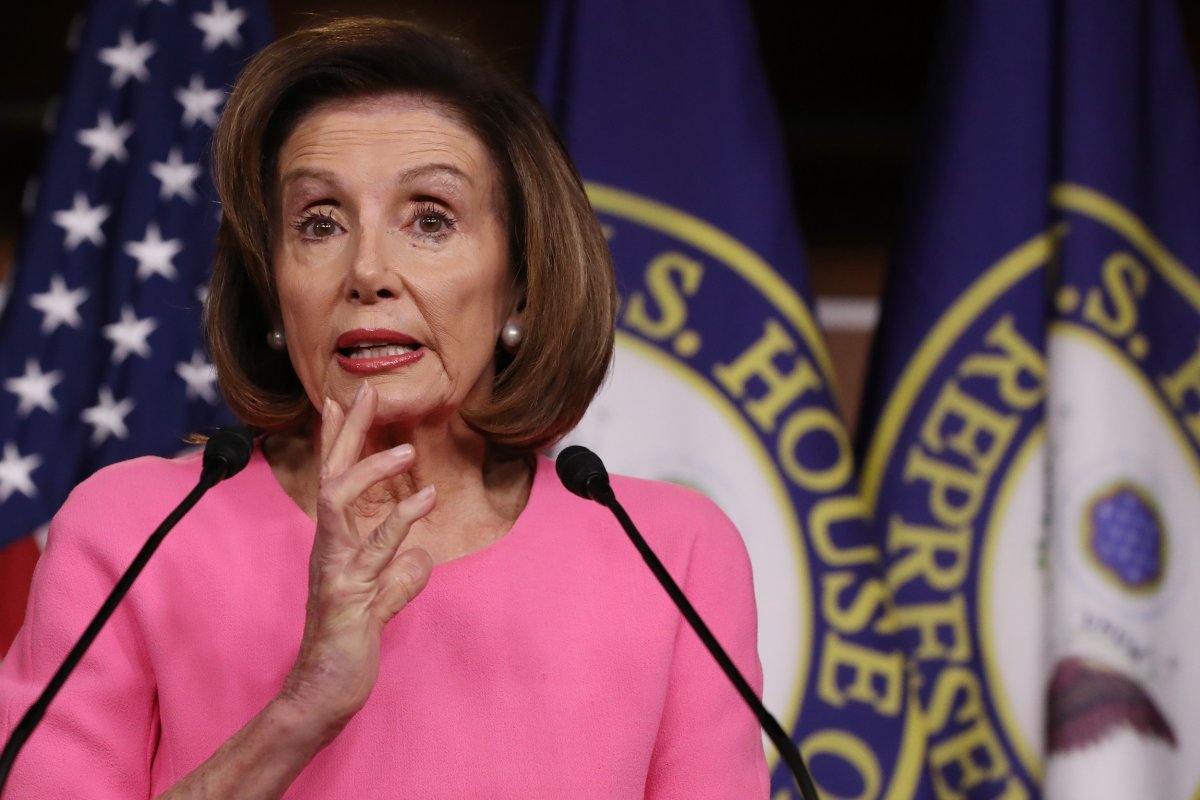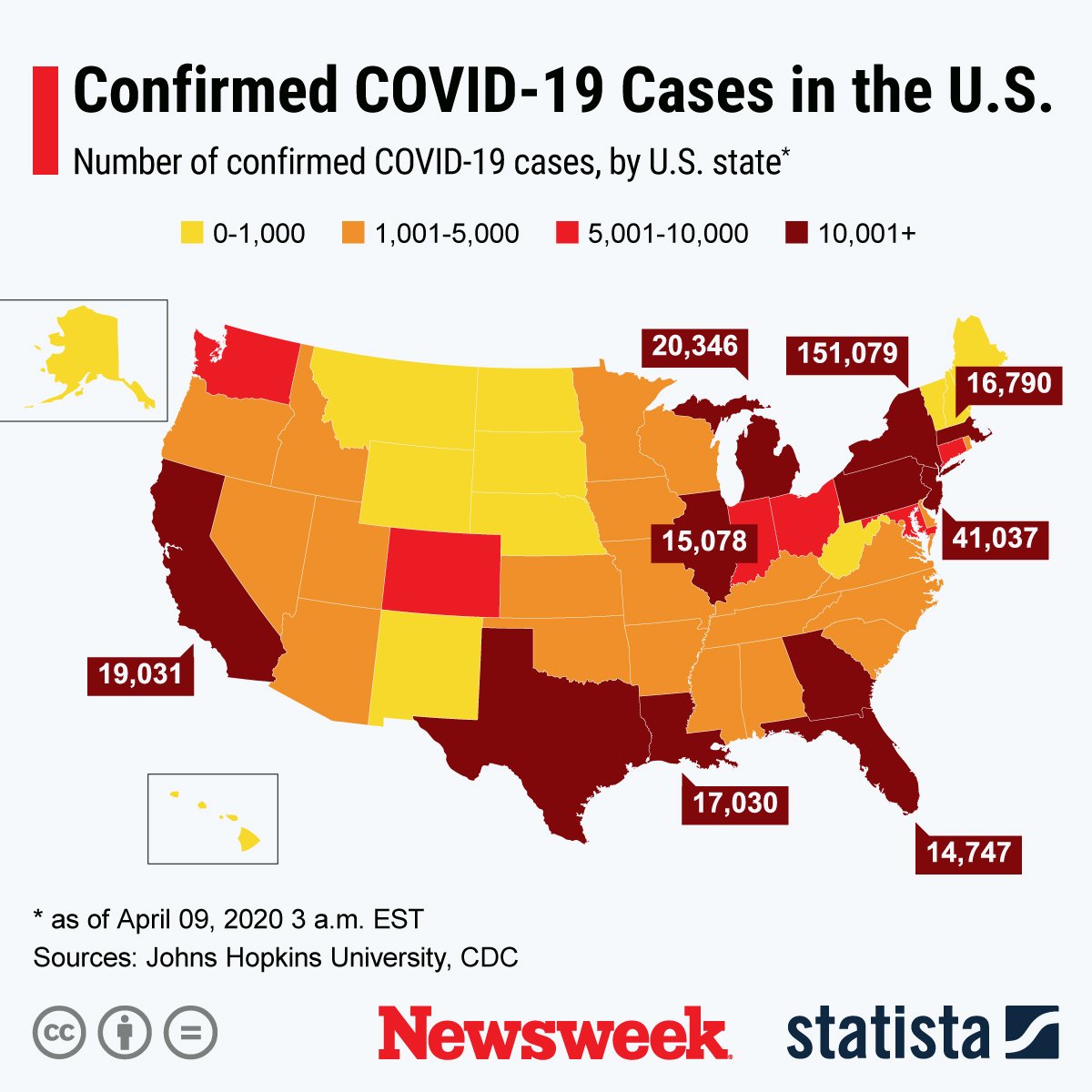House Speaker Nancy Pelosi has said the U.S. government needs to focus on coronavirus testing and other health measures such as developing treatments before it can reopen the economy.
In an interview with Jim Cramer on CNBC's Mad Money on Thursday, Pelosi said the country was in an "era of entrepreneurship" because of the challenges small businesses are facing.
"Let's recognize what that is—that optimism is—to America, but I don't think anybody can tell you a date unless we just take it a week at a time. But let's be hopeful that it's soon," she said.
As the COVID-19 pandemic continues to inflict damage to the economy, members of the administration have increasingly called for business to resume soon, despite contrary advice from health experts.
This week, Treasury Secretary Steven Mnuchin told Cramer that he believes the economy could be open again by May.
In contrast, Pelosi did not give a clear timeline and emphasized that the decision must be based on "science" and "testing" to protect public health, as per the transcript.
"Let's have it be science-based, based on testing so we know what the challenge is, that we have an idea of – we don't know, even though they say they do, but scientists tell me we do not know that if you have contracted this virus and you recover from it, whether you are immune to it in the future," she said.
"We just don't have those facts. So if somebody has had it, is that person immune? Is that a person we can use as a resource for prevention of others? Or is that a person who is contagious, again, infectious?"
The government needs to focus on coronavirus testing and other measures to address the pandemic such as developing treatments to get the country moving, Pelosi said.
"And the health side will have a direct relationship to how we open up the economic side, and the economic side assault, is a big one," she said. "And one that we should use as an opportunity to say, we will use this opportunity of the coronavirus challenge to our economy to be one that does not solidify or ossify the disparity and access to capital, but one that alleviates that, and that would be real progress for our country.
"I have to, though, measure who is infected by this, and that will be by testing. So, again, data, data, data, evidence, science. That is the answer to when we can go back."

When asked about whether the U.S. could experience a depression, Pelosi said it was a possibility.
"Well, we could have a depression because so many people are out of work," she said. "And that is why we have to get the system really energized and working. Let's get out those unemployment checks. Let's get out those direct payments. Let's get these loans freed up, let the banks be the friends to this whole system that they are.
"This is an era of entrepreneurship like none we've ever seen before because of the challenge to small businesses. Let's recognize what that is, that optimism is to America. I don't think anybody can tell you a date unless we just take—we get a time. But let's be hopeful that it will be soon."
More than 6.6 million Americans filed initial unemployment claims last week, according to data released Thursday by the Department of Labor. This brings the total number of people who have filed for unemployment in the past three weeks to more than 16.7 million.
Meanwhile, COVID-19 cases have continued to rise in the U.S. and medical experts believe that infections could peak this month, although few believe that the virus will be contained by May. Even fewer have recommended rolling back social distancing guidelines before the threat has passed.
President Trump said on Wednesday he would like to reopen the U.S. economy with a "big bang" but did not provide a timeframe. He said the death toll from COVID-19 needs to be on the "down side of the slope" before it can happen.
Newsweek has contacted the White House for comment on their strategy to reopen the economy.
The graphic below, provided by Statista, illustrates the spread of COVID-19 in the U.S.

Centers for Disease Control and Prevention Advice on Using Face Coverings to Slow Spread of COVID-19
- CDC recommends wearing a cloth face covering in public where social distancing measures are difficult to maintain.
- A simple cloth face covering can help slow the spread of the virus by those infected and by those who do not exhibit symptoms.
- Cloth face coverings can be fashioned from household items. Guides are offered by the CDC. (https://www.cdc.gov/coronavirus/2019-ncov/prevent-getting-sick/diy-cloth-face-coverings.html)
- Cloth face coverings should be washed regularly. A washing machine will suffice.
- Practice safe removal of face coverings by not touching eyes, nose, and mouth, and wash hands immediately after removing the covering.
World Health Organization advice for avoiding spread of coronavirus disease (COVID-19)
Hygiene advice
- Clean hands frequently with soap and water, or alcohol-based hand rub.
- Wash hands after coughing or sneezing; when caring for the sick; before, during and after food preparation; before eating; after using the toilet; when hands are visibly dirty; and after handling animals or waste.
- Maintain at least 1 meter (3 feet) distance from anyone who is coughing or sneezing.
- Avoid touching your hands, nose and mouth. Do not spit in public.
- Cover your mouth and nose with a tissue or bent elbow when coughing or sneezing. Discard the tissue immediately and clean your hands.
Medical advice
- Avoid close contact with others if you have any symptoms.
- Stay at home if you feel unwell, even with mild symptoms such as headache and runny nose, to avoid potential spread of the disease to medical facilities and other people.
- If you develop serious symptoms (fever, cough, difficulty breathing) seek medical care early and contact local health authorities in advance.
- Note any recent contact with others and travel details to provide to authorities who can trace and prevent spread of the disease.
- Stay up to date on COVID-19 developments issued by health authorities and follow their guidance.
Mask and glove usage
- Healthy individuals only need to wear a mask if taking care of a sick person.
- Wear a mask if you are coughing or sneezing.
- Masks are effective when used in combination with frequent hand cleaning.
- Do not touch the mask while wearing it. Clean hands if you touch the mask.
- Learn how to properly put on, remove and dispose of masks. Clean hands after disposing of the mask.
- Do not reuse single-use masks.
- Regularly washing bare hands is more effective against catching COVID-19 than wearing rubber gloves.
- The COVID-19 virus can still be picked up on rubber gloves and transmitted by touching your face.
Uncommon Knowledge
Newsweek is committed to challenging conventional wisdom and finding connections in the search for common ground.
Newsweek is committed to challenging conventional wisdom and finding connections in the search for common ground.
About the writer
To read how Newsweek uses AI as a newsroom tool, Click here.








